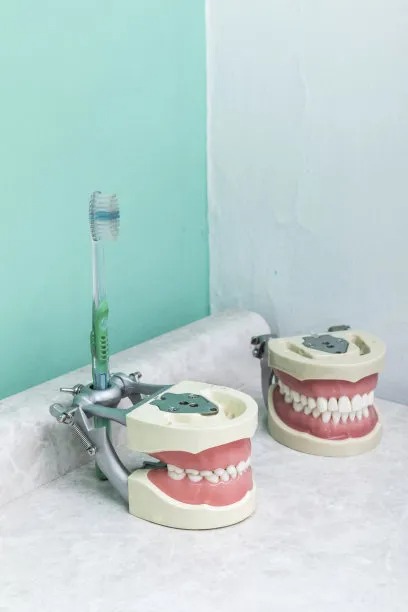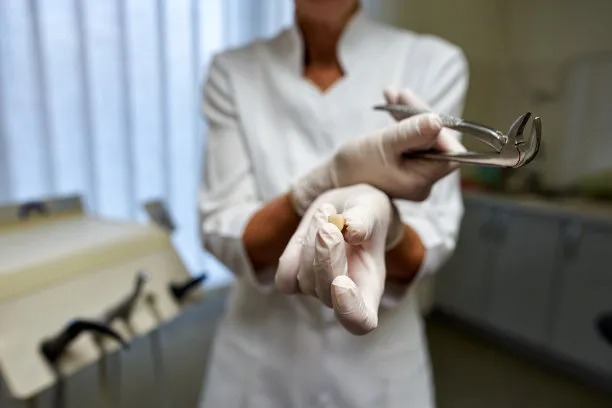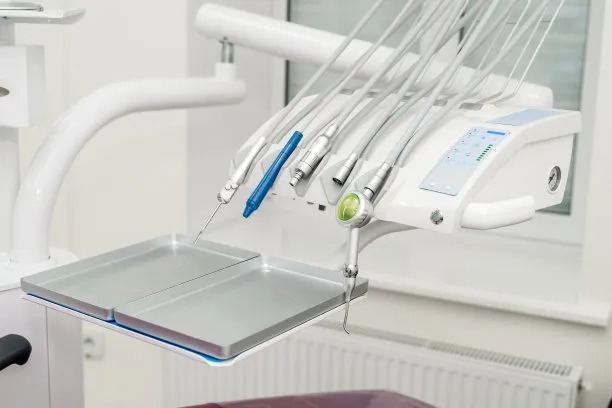Summary: Extracting teeth can be a daunting prospect for both adults and children, yet this procedure plays a crucial role in maintaining overall dental health and wellbeing. Understanding the process, its necessity, and implications can empower patients and their families to make informed decisions. This article delves into the key aspects of tooth extraction, from indications and techniques involved to the recovery process and psychological effects on patients. By shedding light on these topics, we aim to demystify tooth extraction and underscore its significance in dental care.
1. Indications for Tooth Extraction in Patients

Tooth extraction is often a necessary procedure aimed at preserving overall dental health. Common reasons for extraction include significant decay, advanced periodontal disease, and overcrowding. In adults, wisdom teeth, which commonly emerge in late adolescence or early adulthood, may require removal to prevent future complications.
For children, early determination of extraction is essential when a primary tooth is severely damaged or decayed. Such situations can lead to pain and may impede the eruption of permanent teeth. Timely extraction can assure a smooth transition into adult dentition.
Furthermore, dental trauma caused by accidents can necessitate the removal of a tooth that cannot be salvaged. Recognizing these indications can help patients take appropriate action and minimize potential complications.
2. The Tooth Extraction Process Explained
Understanding the tooth extraction process can alleviate fears associated with the procedure. Initially, the dentist will conduct a thorough examination, utilizing X-rays to evaluate the tooths condition and its roots. Based on this assessment, the necessary procedures will be discussed with the patient.
Before the extraction, anesthesia is administered to minimize discomfort. The type of anesthesia may vary depending on the complexity of the extraction. For simple extractions, local anesthesia is often sufficient, while surgical extractions may require sedation. During the procedure, the dentist carefully loosens the tooth and removes it, taking care to reduce any trauma to surrounding tissues.
Post-extraction care is critical for successful recovery. Dentists typically provide aftercare instructions, including how to manage pain and swelling, with follow-up appointments scheduled for monitoring healing progress.
3. Recovery and Aftercare Following Extraction
The recovery phase after a tooth extraction is essential for ensuring optimal healing and preventing complications. Patients are generally advised to rest for at least 24 hours following the procedure. Ice packs can be applied to reduce swelling, and prescribed medication should be taken as directed.
Diet plays a significant role during recovery. Soft foods are recommended, and it is crucial to avoid hot beverages and foods, as well as strenuous activities that could disrupt the healing process. Patients should also avoid sucking actions, such as using straws, to mitigate the risk of developing dry socket, a painful condition that can occur post-extraction.
Regular follow-up appointments enable the dentist to assess the healing process and address any potential concerns promptly. By adhering to aftercare instructions, patients can promote a smooth recovery and maintain their overall dental health.
4. Psychological Impacts of Tooth Extraction
Tooth extraction can invoke anxiety and emotional distress, particularly among children who may not fully understand the necessity of the procedure. Anticipatory anxiety can stem from fear of pain, the dentists environment, or even the aftermath of extraction.
It is essential for parents to address these fears by providing reassurance and information about the procedure. Engaging children in discussions about dental health helps them build a positive mindset regarding essential treatments. Positive reinforcement and distraction techniques can further ease anxiety.
Moreover, for adults, experiencing tooth loss can affect self-esteem and social interactions. The aesthetic impacts of missing teeth can lead to reluctance in smiling or speaking comfortably. Highlighting the restorative options available following extraction can significantly boost confidence and allow individuals to maintain a positive self-image.
Summary:
This article has guided you through understanding the need for tooth extraction, the procedures involved, recovery protocols, and the emotional considerations that accompany this vital dental practice. Grasping these elements is crucial for making informed choices regarding dental health. A proactive approach to tooth extraction can lead to enhanced wellbeing both physically and mentally.
This article is compiled by Vickong Dental and the content is for reference only
Vickong Dental
Vickong Dental is a large medical group established in Hong Kong in 2008 by professors from well-known medical universities in Guangdong and Hong Kong, as well as medical doctors from key national '985' universities (including Master's supervisors and senior professors). The chain of branches brings together expert dentists with PhDs and Master's degrees from Hong Kong and Mainland China, committed to providing high-quality dental treatment.
"Vickong Dental Practices the University Motto of 'Healing and Serving Society,' with a Stable Operation for Sixteen Years. It Has Been honored with Hong Kong Enterprise Leaders's Choice,' and is a Global Trusted Implant Center for the Nobel Implant System. Recommended by Hong Kong Metro Broadcast and Guangdong Television, it Serves Customers from Over Thirty Countries and Regions, Gaining the Trust and Favor of Citizens from the Guangdong-Hong Kong-Macau Greater Bay Area and Surrounding Cities.

Thousands of customers' unanimous praise
The most recognized and highly recommended dental service by customers in the Guangdong-Hong Kong-Macau Greater Bay Area
We Ensure You Receive Detailed Care and Attention Here
Hong Kong standards, Shenzhen prices, Your Trusted English-speaking dentists

Vickong Dental Medical-Grade Instrument Disinfection Process
Vickong Dental Medical-Grade Instrument Disinfection Process

Vickong Dental Chain: A Warm and Comfortable Environment for Treatment






Appointment Hours

Q&A
Why choose Vickong Dental?
Vickong Dental practices the university motto 「Medicine to Benefit Society」, with each branch bringing together highly qualified dentists with doctoral and master’s degrees from Hong Kong and the Mainland, and has maintained seventeen years of steady operation。Recipient of 「2024 Hong Kong Enterprise Leaders Brand」, 「2025 Hong Kong Enterprise Leaders Brand」, a Nobel Biocare Global Trusted Implant Center, and a brand recommended by Metro Radio Hong Kong and Guangdong TV。
To date, we have served customers from more than thirty countries and regions,earning exceptionally high word-of-mouth recognition and trusted recommendations from residents across the Guangdong-Hong Kong-Macao Greater Bay Area and surrounding cities
We have eight major branches in Zhuhai、Shenzhen,and a consultation and service assurance center in Hong Kong,so you can book a free consultation at any time for any questions,which is very reassuring.
If I do not accept the quotation after the CT scan, will I be charged??
No! As long as the actual treatment has not started, you will not be charged any fees.
Will there be any additional charges during the treatment process?
No, there won’t be any additional charges. Before treatment begins, we will clearly explain the treatment plan and its corresponding fees. Only after the patient agrees and signs the consent form will we proceed with the dental service.
Can I pay in Hong Kong dollars?
Yes. Vickong Dental accepts payment in Hong Kong dollars. The amount will be converted based on the exchange rate of the day, and the applicable rate will be clearly communicated to you in advance.
Can I reschedule my appointment at any time?
Yes. Please contact us via **WeChat** or **WhatsApp** as early as possible, providing your original appointment time and details, along with your preferred new date and time slot for rescheduling.













